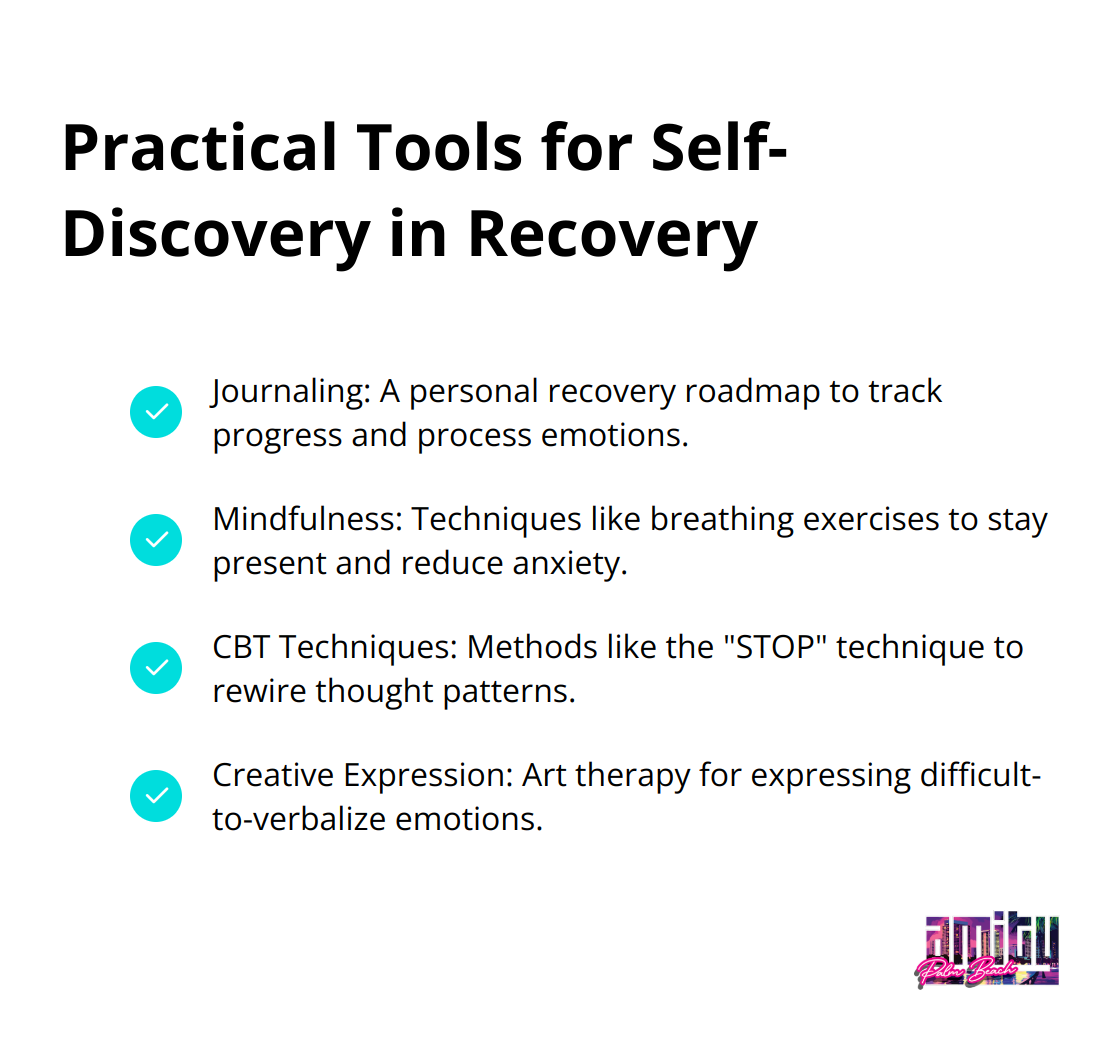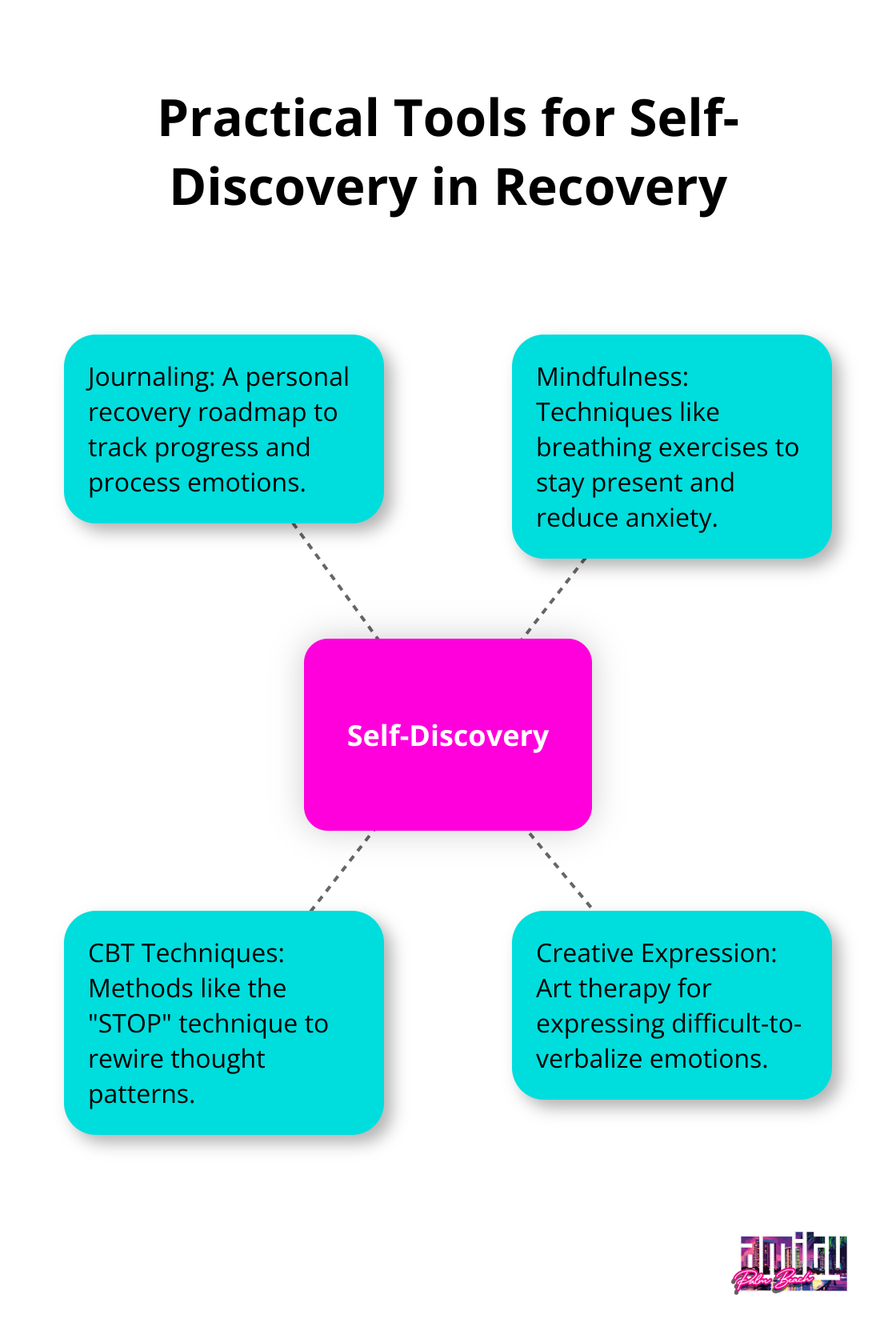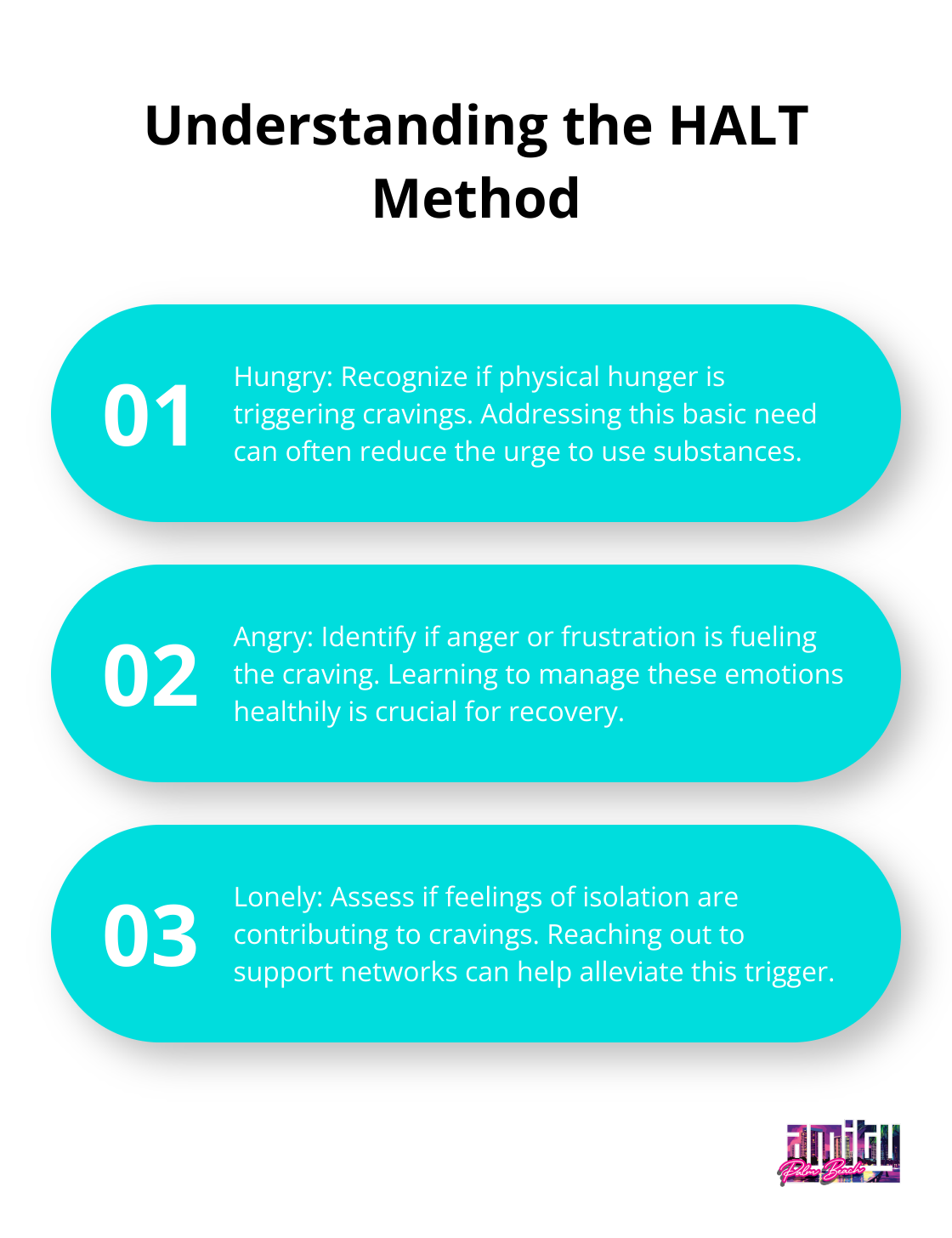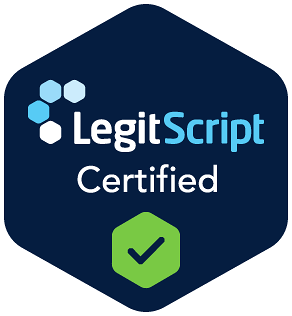At Amity Palm Beach, we understand that recovery is a deeply personal journey. The healing process in addiction recovery involves multiple stages, each presenting unique challenges and opportunities for growth.
Our guide aims to shed light on this transformative path, offering insights into the stages of healing, tools for self-discovery, and strategies for overcoming obstacles. We’re here to support you every step of the way.

Stages of Personal Healing in Recovery
The journey of addiction recovery is a deeply personal process, marked by distinct stages that each individual experiences uniquely. At Amity Palm Beach, we’ve witnessed countless clients navigate these stages, and we’re here to guide you through them.
Recognizing the Need for Change
The first step in recovery is to acknowledge that change is necessary. This realization often comes after experiencing significant consequences due to substance use. The National Institute on Drug Abuse reports that this stage can bring up a mix of emotions – fear, shame, and relief. It’s a sign of strength, not weakness, to recognize the problem.
Physical Restoration Through Detoxification
Once an individual decides to change, the next step is often detoxification. This process can last anywhere from a few days to several weeks (depending on the substance used and individual circumstances). During this stage, our medical team provides 24/7 support to ensure comfort and safety. We use evidence-based medications and therapies to manage withdrawal symptoms effectively.
Emotional and Psychological Healing
As the fog of addiction lifts, underlying emotional and psychological issues often surface. This is where the real work of recovery begins. We employ a range of therapies, including Cognitive Behavioral Therapy (CBT) and Dialectical Behavior Therapy (DBT), to address these issues. CBT is a highly effective long-term treatment modality for addiction, often yielding favorable outcomes in managing thoughts, emotions, and behaviors related to substance use.
Rebuilding Relationships and Social Connections
The final stage involves repairing damaged relationships and building new, healthy social connections. This process can challenge individuals but is essential for long-term recovery. We offer family therapy sessions and teach communication skills to help our clients navigate this stage successfully. Research from the Journal of Studies on Alcohol and Drugs indicates that individuals with a higher percentage of non-drinking friends are more likely to maintain abstinence.
At Amity Palm Beach, we understand that healing is not linear. You may revisit these stages multiple times throughout your recovery journey. Our team supports you every step of the way, providing personalized addiction treatment that addresses your unique needs and circumstances.
As we move forward in our exploration of the recovery journey, let’s examine the tools and techniques that can aid in self-discovery and personal growth during this transformative process.
Practical Tools for Self-Discovery in Recovery
At Amity Palm Beach, we witness the transformative power of self-discovery tools in the recovery journey. These aren’t abstract concepts, but practical strategies our clients use daily to navigate their path to healing.
Journaling: Your Personal Recovery Roadmap
Journaling through the recovery process can help individuals channel their emotions, identify triggers, and self-motivate to navigate healing with positivity. It serves as a powerful tool to track progress and process emotions. We suggest starting with a simple prompt: “Today, I’m grateful for…” This practice shifts focus from challenges to positive aspects of recovery.
Mindfulness: Staying Present in Recovery
Mindfulness doesn’t require an empty mind; it focuses on the present moment. We teach a simple 5-minute breathing exercise: Breathe in for 4 counts, hold for 7, exhale for 8. This technique, practiced daily, can significantly reduce anxiety and cravings.
Research shows that mindfulness treatments have significant small-to-large effects in reducing the frequency and severity of substance misuse. This data highlights the tangible benefits of incorporating mindfulness into recovery.

CBT Techniques: Rewiring Thought Patterns
Cognitive Behavioral Therapy (CBT) forms a cornerstone of our <a href=”https://share.google/V3Fb6lqR1VEcZD9gZ”>addiction treatment</a> program. We teach the “STOP” method:
S – Stop what you’re doingT – Take a deep breathO – Observe your thoughts and feelingsP – Proceed with a helpful action
This simple acronym helps clients interrupt negative thought patterns and make conscious choices aligned with their recovery goals.
Creative Expression: Healing Through Art
Art therapy isn’t exclusive to artists. It provides a powerful tool for expressing emotions that are difficult to verbalize. We’ve observed clients make significant breakthroughs through simple activities like collage-making or free-form painting.
These self-discovery tools represent practical, actionable strategies that our clients use every day to navigate their recovery journey. As we move forward, let’s explore how to overcome obstacles that may arise during this transformative process.
Navigating Recovery Roadblocks
At Amity Palm Beach, we witness the incredible resilience of our clients as they overcome challenges in their recovery journey. This chapter explores common obstacles and provides practical strategies to overcome them.
Tackling Triggers and Cravings
Triggers and cravings present significant hurdles in recovery. We teach our clients the HALT method to manage these moments. HALT is an acronym that stands for Hungry, Angry, Lonely, and Tired. Identifying which of these states they’re in helps clients address the root cause of their craving.

We also encourage distraction techniques. One effective strategy is the 15-minute rule: when a craving hits, wait 15 minutes before acting on it. Often, the urge passes within this time.
Stress and Anxiety Management
Stress and anxiety can trigger relapse. We incorporate several evidence-based techniques in our program:
- Progressive Muscle Relaxation: This technique promotes physical and mental relaxation through tensing and relaxing different muscle groups.
- Guided Imagery: Audio recordings help clients visualize calming scenes, reducing anxiety.
- Deep breathing exercises can help reduce stress levels and promote relaxation.
Addressing Co-occurring Mental Health Issues
Co-occurring mental health disorders frequently accompany <a href=”https://share.google/V3Fb6lqR1VEcZD9gZ”>addiction treatment</a>. Our approach includes:
- Comprehensive psychiatric evaluations
- Medication management (when necessary)
- Specialized therapies like Dialectical Behavior Therapy (DBT) for emotional regulation
Bouncing Back from Setbacks
Setbacks form a normal part of recovery. The key lies in how we respond to them. We encourage our clients to view setbacks as learning opportunities rather than failures. After a setback, clients should:
- Reach out to their support network immediately
- Attend additional support group meetings
- Schedule an extra therapy session to process the event
A setback doesn’t erase progress. It offers a chance to strengthen recovery skills and come back stronger.
Final Thoughts
The healing process in addiction recovery transforms lives through courage and commitment. At Amity Palm Beach, we support individuals as they navigate personal healing stages, from acknowledging change to rebuilding connections. Our clients use self-discovery tools like journaling and mindfulness to foster growth and resilience during their recovery journey.
Recovery doesn’t end with treatment completion. Ongoing support plays a vital role in maintaining sobriety and personal growth. We offer comprehensive aftercare and alumni programs to provide our clients with necessary resources for their new lives (free from substance dependence).
You have the strength to overcome challenges and create the life you desire. If you’re ready to start your journey towards healing, Amity Palm Beach offers personalized, evidence-based treatment in a compassionate environment. Our experienced team will guide you through every stage of recovery, helping you reclaim your future.




